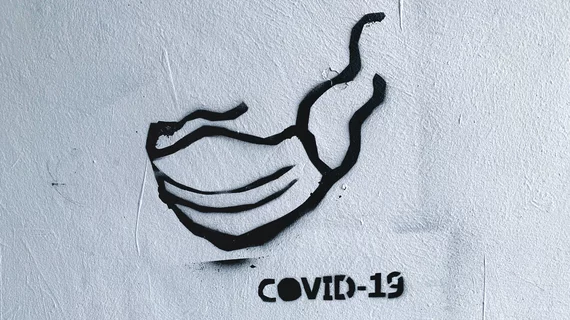Playing the percentages on face masks: 5 points to ponder
Around the world during the COVID-19 pandemic, words have occasionally led to blows over people in public not wearing face masks. Then too, fisticuffs have erupted over people in public wearing face masks.
Part of the problem may lie with the inherent inconstancy of the variables—mask styles, materials, fit, placement and so on.
And that’s to say nothing of the politicization of the commentary circulating online.
This further confounds evidence-based decision-making, especially outside of healthcare settings.
Science journalist Lynne Peeples breaks it all down, citing anecdotal observations as well as scientific studies, in a 3,000-word news analysis published Oct. 6 in Nature.
Here’s the gist of five enlightening percentage-based points on which Peeples expounds.
1. A heavyweight cotton T-shirt, presumably pulled far enough up over the face, could block 50% of inhaled aerosols and almost 80% of exhaled aerosols measuring 2 micrometers across.
2. Surgical and cloth masks of similar design may be under 70% effective at protecting the wearer.
3. In the U.S., mask-wearing in public spaces hit 50% in late July and has stayed there since.
4. That’s a significant jump from the 20% reported in March and April.
5. If the U.S. were to increase mask use to Singapore-like levels—95%—some 100,000 lives might be saved by this coming New Year’s Day.
“To be clear, the science supports using masks, with recent studies suggesting that they could save lives in different ways: Research shows that they cut down the chances of both transmitting and catching the coronavirus, and some studies hint that masks might reduce the severity of infection if people do contract the disease,” Peeples writes. “But being more definitive about how well they work or when to use them gets complicated.”

